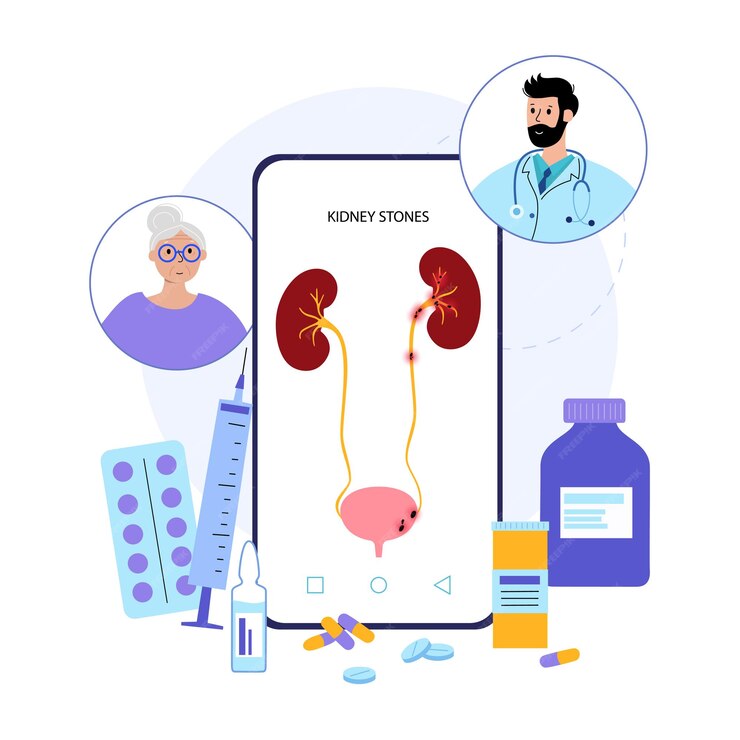
Understanding Complications of Diabetic Nephropathy: What You Need to Know
Introduction: Diabetic nephropathy, a common complication of diabetes, can lead to various health issues if left unmanaged. In this blog, we’ll explore the complications of diabetic nephropathy in simple terms to help you understand the importance of early detection and management.
- High Blood Pressure (Hypertension): Diabetic nephropathy can lead to high blood pressure, which further damages the kidneys and increases the risk of heart disease, stroke, and other complications.
- Fluid Retention (Edema): As kidney function declines, excess fluid may build up in the body, leading to swelling in the legs, ankles, feet, or hands. This fluid retention can cause discomfort and increase the risk of infections and skin problems.
- Electrolyte Imbalance: Kidney damage can disrupt the balance of electrolytes in the body, such as sodium, potassium, and calcium. Imbalances in electrolytes can lead to muscle weakness, irregular heartbeats, and other health issues.
- Anemia: Diabetic nephropathy can impair the production of red blood cells, leading to anemia. Symptoms of anemia include fatigue, weakness, shortness of breath, and pale skin.
- Bone Disease (Osteodystrophy): Kidney damage can affect the body’s ability to maintain healthy bones, leading to bone disease. This can increase the risk of fractures, bone pain, and other skeletal problems.
- Cardiovascular Disease: Individuals with diabetic nephropathy are at increased risk of developing cardiovascular disease, including heart attack, stroke, and peripheral artery disease. This is due to the combined effects of diabetes, kidney damage, and high blood pressure.
- End-Stage Renal Disease (ESRD): In severe cases, diabetic nephropathy can progress to end-stage renal disease, where the kidneys fail to function adequately. Dialysis or kidney transplantation may be necessary to sustain life.online pharmacy buy metformin no insurance with best prices today in the USA
Early detection and management of diabetic nephropathy are crucial for preventing or delaying these complications and improving outcomes for individuals with diabetes.
online pharmacy buy lexapro no insurance with best prices today in the USA
To seek medical advice, always consult a Doctor. Here are our recommended experts. Click here
To read more on Polycystic kidney disease.
online pharmacy buy valtrex no insurance with best prices today in the USA
Click Here
Recent Posts
Dr. Karan0 Comments
Preventing Gum Disease: Key Habits and Dental Check-ups
Dr. Karan0 Comments
Recognizing the Signs and Symptoms of Gum Disease:
Tags
#support
arthritis
Blood tests
causes
Children
complications
coping strategies
diabetes
diagnosis
diet
eczema
exercise
Healthy Lifestyle
Heart Disease
heart health
High blood pressure
hormonal imbalances
Hormones
hydration
india
Indian patients
inflammation
lifestyle changes
management
medication
Medications
mental health
Nutrition
pain management
physical therapy
pregnancy
prevention
recovery
risk factors
signs
skincare
skin condition
stress management
stroke
support
surgery
symptoms
transmission
treatment
treatment options



